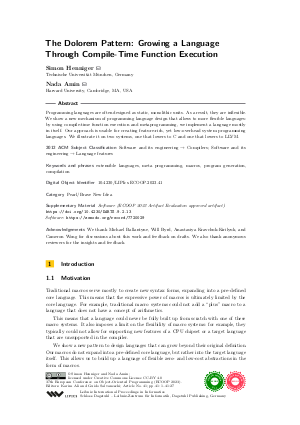LIPIcs.ECOOP.2023.41.pdf
- Filesize: 0.69 MB
- 27 pages

 Creative Commons Attribution 4.0 International license
Creative Commons Attribution 4.0 International license





Feedback for Dagstuhl Publishing